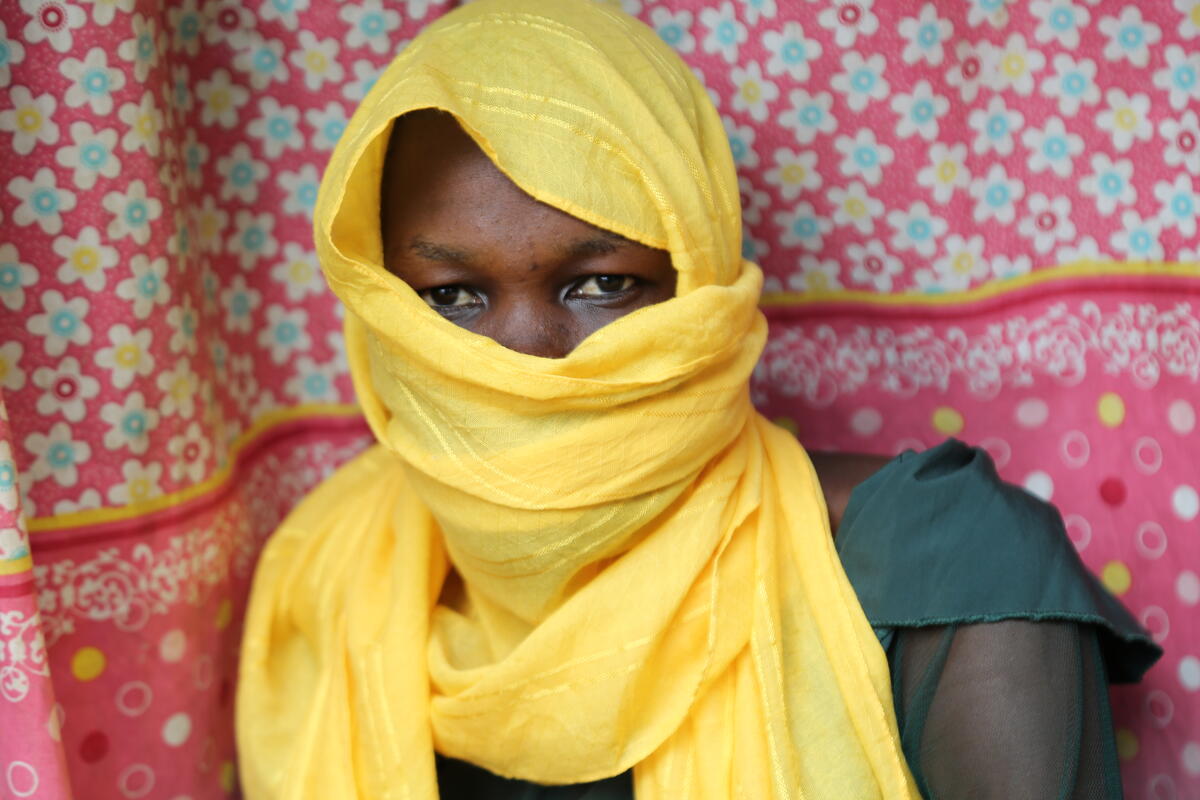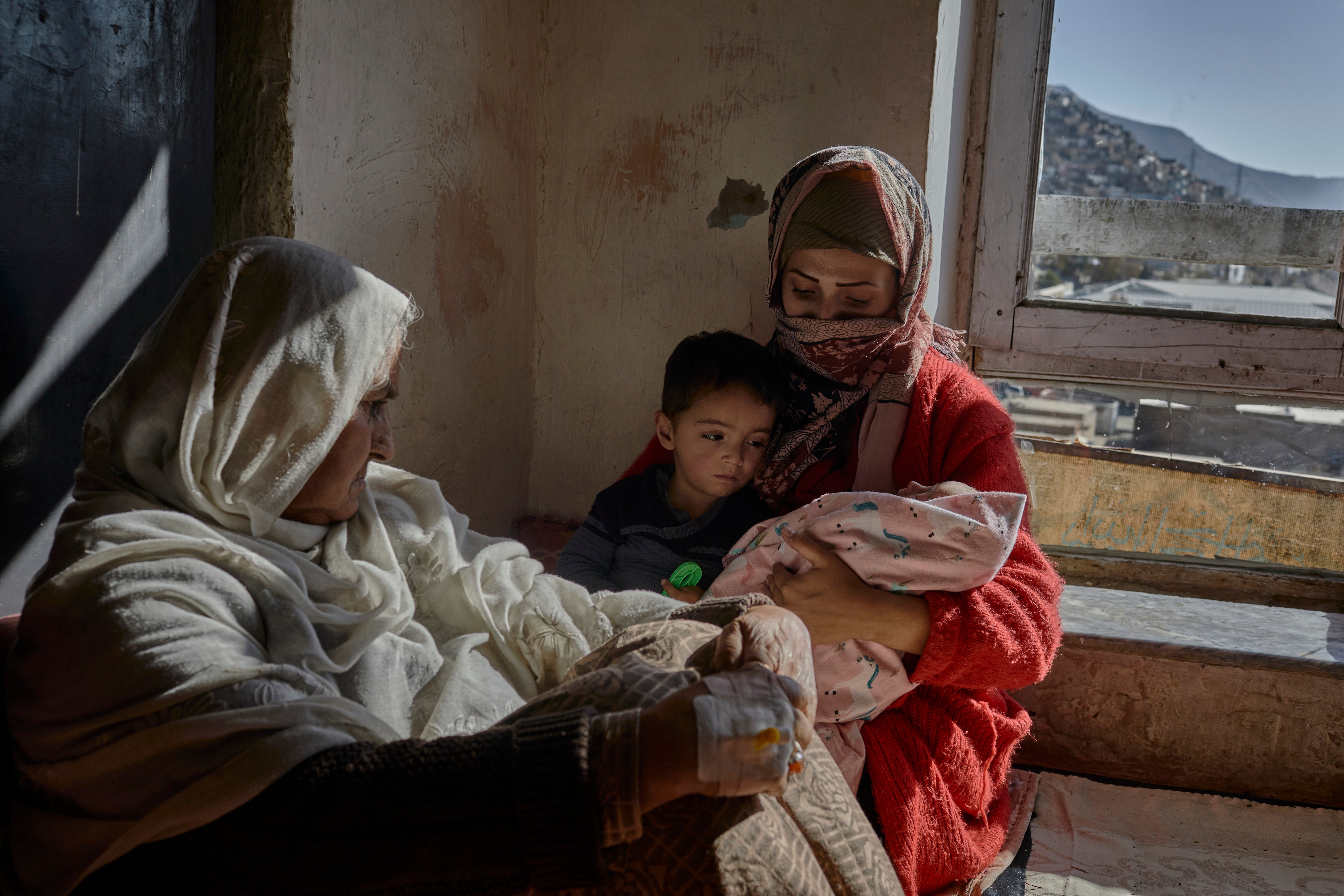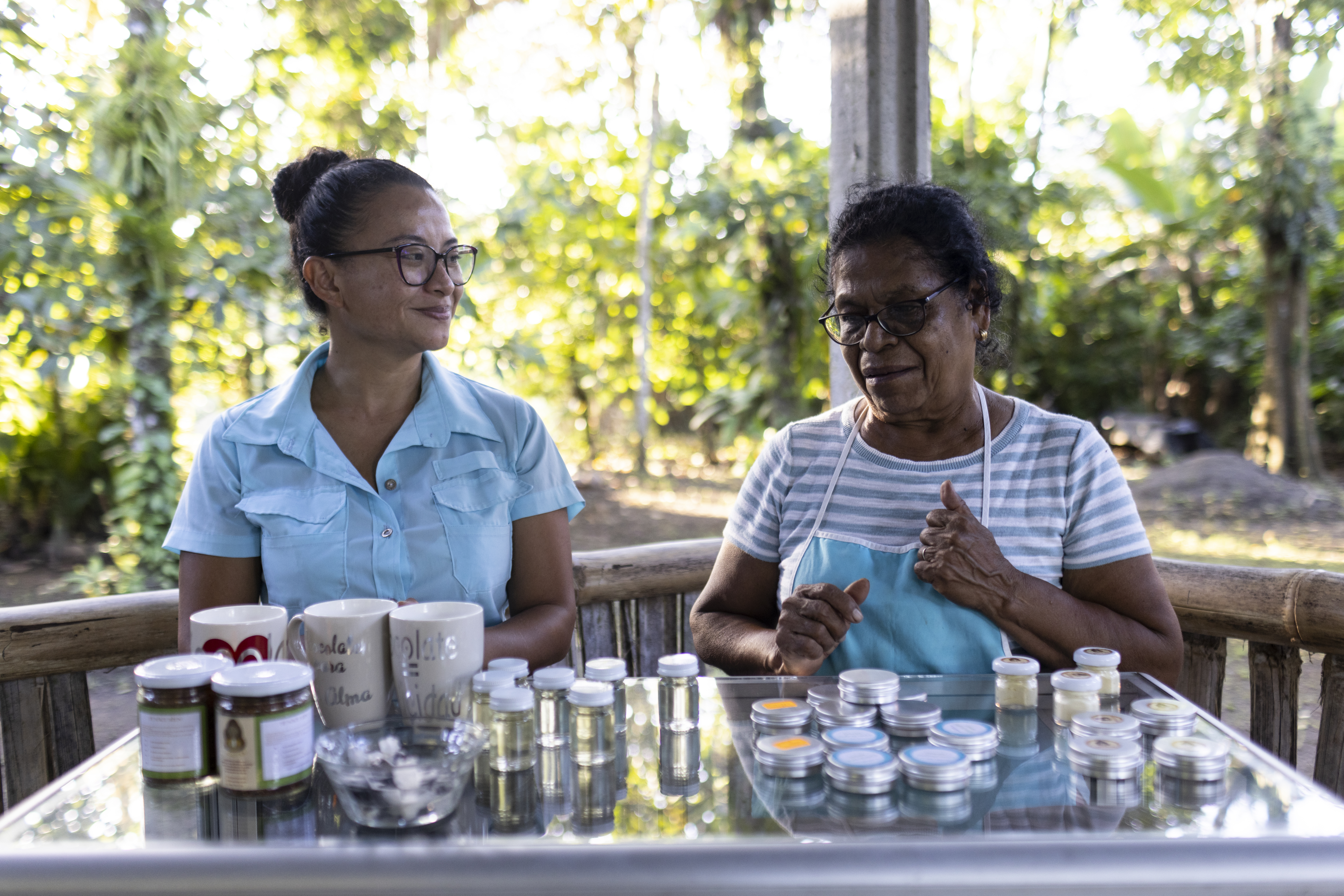Centres bring affordable day care for refugee mothers in Costa Rica
Centres bring affordable day care for refugee mothers in Costa Rica

SAN JOSÉ, Costa Rica, August 25 (UNHCR) - Every morning at 7:30 sharp, Ericka drops off her two young children at Jacqueline's house before heading off to work. It is an arrangement that suits the two neighbours perfectly.
Both are Colombians who fled to Costa Rica to escape conflict in their homeland, where their husbands were the breadwinners. But in Costa Rica the two women also need employment to support their families - that's difficult for mothers with young children in a place with a shortage of suitable childcare facilities.
Things changed in May, when UNHCR implementing partner Asociación de Consultores y Asesores Internacionales (ACAI) opened a day care centre in the Costa Rican capital, San José, with funding from the United States. Based on a system of mutual support between refugees, the centre gives refugee and Costa Rican mothers a safe place to leave their children during the day.
"Going to work used to be very disturbing for me," said Ericka, who sells pastries at a street stall. "I had to rely on different people whom I did not entirely trust. Jacqueline is different; you can feel the love she gives the children. Now, on Saturday and Sunday morning my three-year-old even asks me to take him to the small school, as he calls it!"
The idea for the programme, which aims to provide both childcare and job opportunities for refugee women, came two years ago when UNHCR realised that many refugees faced the same problems as Ericka and Jacqueline in finding work. Its implementation, however, proved to be a long and complex process.
"We liked the idea from the start and thought it would be economically viable," said Mayra Fernandez, coordinator of the project for ACAI. "But first we had to identify suitable candidates, and when it comes to caring for children finding the right person is a huge responsibility."
Candidates were put through a series of questionnaires, tests and a psychological assessment to determine their interest, aptitude and commitment.
Jacqueline was among those selected and went on to receive first-aid training to help her cope in emergencies. To keep the children busy and happy, students at the University of Costa Rica designed a series of physical, pedagogical and recreational activities and materials.
Final authorisation came from the government, which vets the opening of all day care centres in the country after checking both the condition of the premises and the credentials of those in charge.
The last hurdle was a financial one. Despite a growing refugee population in the Latin American nation, UNHCR faces a severe shortage of funds in Costa Rica and was unable to pay for the opening of the first centre. Fortunately, the US Embassy stepped into the breach and agreed to finance the programme.
"When UNHCR contacted us, we were happy to help and play a part in making affordable childcare become a reality for refugees in Costa Rica," said Andy Prater, human rights and labour officer at the US mission in San José.
The first day care nursery opened its doors in May to six children - two Costa Ricans and four refugees - with Jacqueline in charge. Two more centres are due to open in the capital later this year.
Jacqueline, who worked as a teacher before she was forced to flee Colombia with her family, cannot believe her luck. For four years, she could not find work and her husband had been doing odd jobs to keep the family going.
"Working with children is great. This is what I was born for," she said. "Now I am a mother of two teenagers with many more children to take care of. It is a way of showing solidarity with fellow refugees - but also with Costa Rican mothers, who have welcomed us since the first and grayest days of our stay."
By Giovanni Monge in San José, Costa Rica









